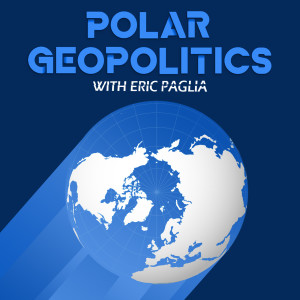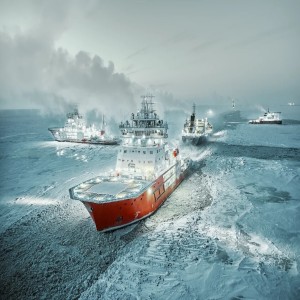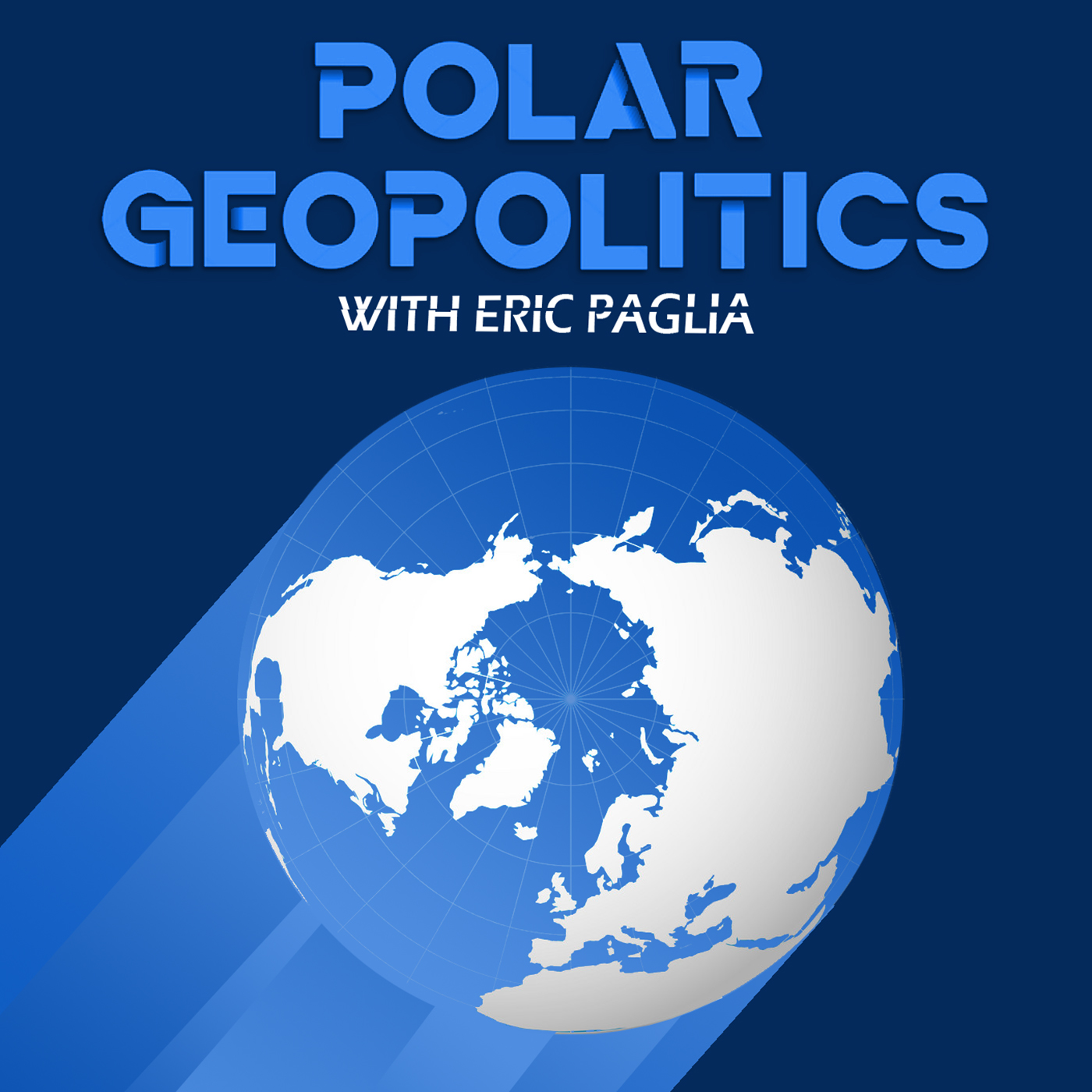Episodes

Tuesday Sep 08, 2020
Tuesday Sep 08, 2020
The admission of China, India, Japan, Singapore and South Korea as observers to the Arctic Council in 2013 seemed a turning point in contemporary Arctic history, with the rapidly increasing engagement of Asian states appearing to signal the arrival of globalization as well as a new era of geopolitics in the High North. But how has it so far played out on the ground and on the ice? To analyze the evolving strategies and activities of the five Asian observer states over the past seven years, Polar Geopolitics is joined by Dr. Mia Bennett, associate professor at the University of Hong Kong and founder of the Cryopolitics blog. Dr. Bennett is an expert on Asian activity in the Arctic, and is a co-author of the newly-published edited volume “Observing the Arctic: Asia in the Arctic Council and Beyond” (Edward Elgar, 2020).

Friday Jul 03, 2020
Friday Jul 03, 2020
The opening of a US Consulate in Nuuk, Greenland represents the latest in a series of moves that signal a deepening geopolitical engagement in the Arctic by the United States in response to Russian and Chinese advances in the region. To explain the current U.S. policy and strategic outlook on the Arctic, including an in-depth discussion on Greenland, this episode of the podcast features an interview with one of the top American officials on Arctic issues: Michael J. Murphy, Deputy Assistant Secretary for Nordic, Baltic, and Arctic Security Affairs at the Bureau of European and Eurasian Affairs at the United States Department of State.

Sunday Jun 07, 2020
Governance disrupted: Pandemic impacts on Antarctica
Sunday Jun 07, 2020
Sunday Jun 07, 2020
Although Antarctica is the only continent without a case of COVID-19, the pandemic has already caused a great deal of disruption to the ATS governance regime, as well as to scientific research and the tourism industry. Some even foresee a shift in Antarctic geopolitics as a result of the coronavirus crisis. To analyze the range of potential impacts of COVID-19 on Antarctica in the short, medium and long term, this episode of Polar Geopolitics features Associate Professor Alan Hemmings, an expert on Antarctic governance and geopolitics at the Gateway Antarctica Centre for Antarctic Studies and Research at the University of Canterbury in Christchurch, New Zealand.

Monday May 18, 2020
Monday May 18, 2020
Russian and Norwegian interests intersect and occasionally collide in the Barents Sea and Svalbard, an Arctic geopolitical hotspot where lucrative fisheries, extensive energy resources and strategic nuclear forces exist in relatively close proximity. To analyze why simmering tensions between Norway and Russia in the Barents-Svalbard region have once again risen to the surface, Polar Geopolitics is joined by Dr. Andreas Østhagen, a senior research fellow at the Fridtjof Nansen Institute and an expert on Arctic geopolitics and the Barents Sea.

Thursday Apr 09, 2020
Crisis as opportunity: China and coronavirus diplomacy in the Arctic
Thursday Apr 09, 2020
Thursday Apr 09, 2020
In part 2 of the interview with Polar Geopolitics, Prof. Ilan Kelman explains how the coronavirus crisis provides an opportunity for actors inside and outside the Arctic to influence policy agendas and reshape the geopolitics of the region. Also in this episode, polar historian Peder Roberts tells of the failed attempt to introduce penguins into northern Norway.

Thursday Mar 26, 2020
Risks to Arctic Communities from the Coronavirus
Thursday Mar 26, 2020
Thursday Mar 26, 2020
Communities in the sparsely populated Arctic already faced significant social, economic and public health challenges, and the specter of COVID-19 spreading to the circumpolar North raises a number of serious concerns. What is more, the widespread disruptions in the wake of the pandemic will hit Northern communities that depend on for instance tourism, international scientific activity and the export of natural resources particularly hard. Ilan Kelman, a Professor of Disasters and Health, joins the podcast to explain how underlying vulnerabilities in Arctic communities could lead to an array of serious consequences in the context of the coronavirus crisis.

Monday Mar 09, 2020
Russia, China and the Arctic: Strategic partnership, strategic mistrust?
Monday Mar 09, 2020
Monday Mar 09, 2020
With energy shipments rapidly expanding and apparent personal chemistry between Vladimir Putin and Xi Jinping, the alignment of Russian and Chinese interests has caused concern in some capitols and altered the geopolitical calculus in the Arctic. But is this simply an emerging strategic partnership of convenience, which obscures a deeper level of strategic mistrust between two countries that have for centuries oscillated between being allies and adversaries? Ekaterina Klimenko analyzes the currently warming relationship between Russia—the geographic giant of the Arctic, and China—the ambitious Arctic outsider that has a yen to build a ‘polar silk road’ along the northern reaches of Eurasia. This episode also features a new segment on the podcast featuring polar historian Peder Roberts, who tells the tale of the Nazi expedition to Antarctica and Neuschwabenland, their short-lived claim on the continent.

Thursday Feb 13, 2020
Northern Sea Route: Embodiment of Russia's interests and ambitions in the Arctic
Thursday Feb 13, 2020
Thursday Feb 13, 2020
The Northern Sea Route is central to questions of shipping, security, sovereignty, climate change and the exploitation and export of the massive energy reserves in the north of Russia, making the development of the NSR perhaps the most pivotal geopolitical issue in the Arctic this decade. It also represents a window—albeit often less than transparent—into the complexities of Russian domestic politics and the Kremlin’s intentions in the circumpolar North. Ekaterina Klimenko, an expert on Russia and the Arctic at the Stockholm International Peace Research Institute, joins the Polar Geopolitics podcast to share her wide-ranging analytical insights into this storied and increasingly strategic waterway in the context of contemporary Arctic and Russian geopolitics.

